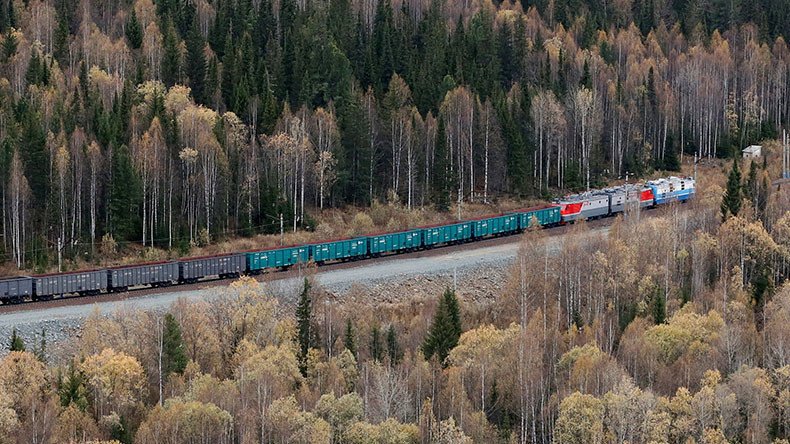Russia's legendary Trans-Siberian Railway to get multibillion-dollar makeover

Russian Railways plans to increase investment next year to a record 579.4 billion rubles (about $10 billion), according to a draft program obtained by Reuters.
The principal focus of the investment is the modernization of Baikal–Amur mainline (a 4,324 km long railway line that passes through Siberia and the Far East). The money will also go to the Trans-Siberian Railway which connects European Russia with the country's Far East, China, Mongolia and North Korea.
The Trans-Siberian Railway was built between 1891 and 1916 under the supervision of ministers personally appointed by Tsar Alexander III and his son, later Tsar Nicholas II.
Spanning a record eight time zones, it connects hundreds of large and small cities of the European and Asian parts of Russia over 9,289 kilometers, making it the world's longest railway.
Russian Railways plans to modernize the rolling stock, as well as expand approaches to ports and develop the Moscow transport hub.
The investment program and the financial plan of the state-owned railway monopoly are approved annually by the Russian government. The planned $10 billion investment would be the largest at least since 2010, according to Reuters.
Russian Railways will invest 672.9 billion rubles in 2019 and 591.2 billion in 2020.
By 2030, the company intends to significantly upgrade the rolling stock, construct 20,000 km of new railway track, upgrade existing railways, build lines to 18 industrial zones and promising mineral deposits, which will require more than 4,600 kilometers of track and create and develop terminal and logistics centers. If all the work is done, the Russian rail network will increase by 24 percent, according to the company.













